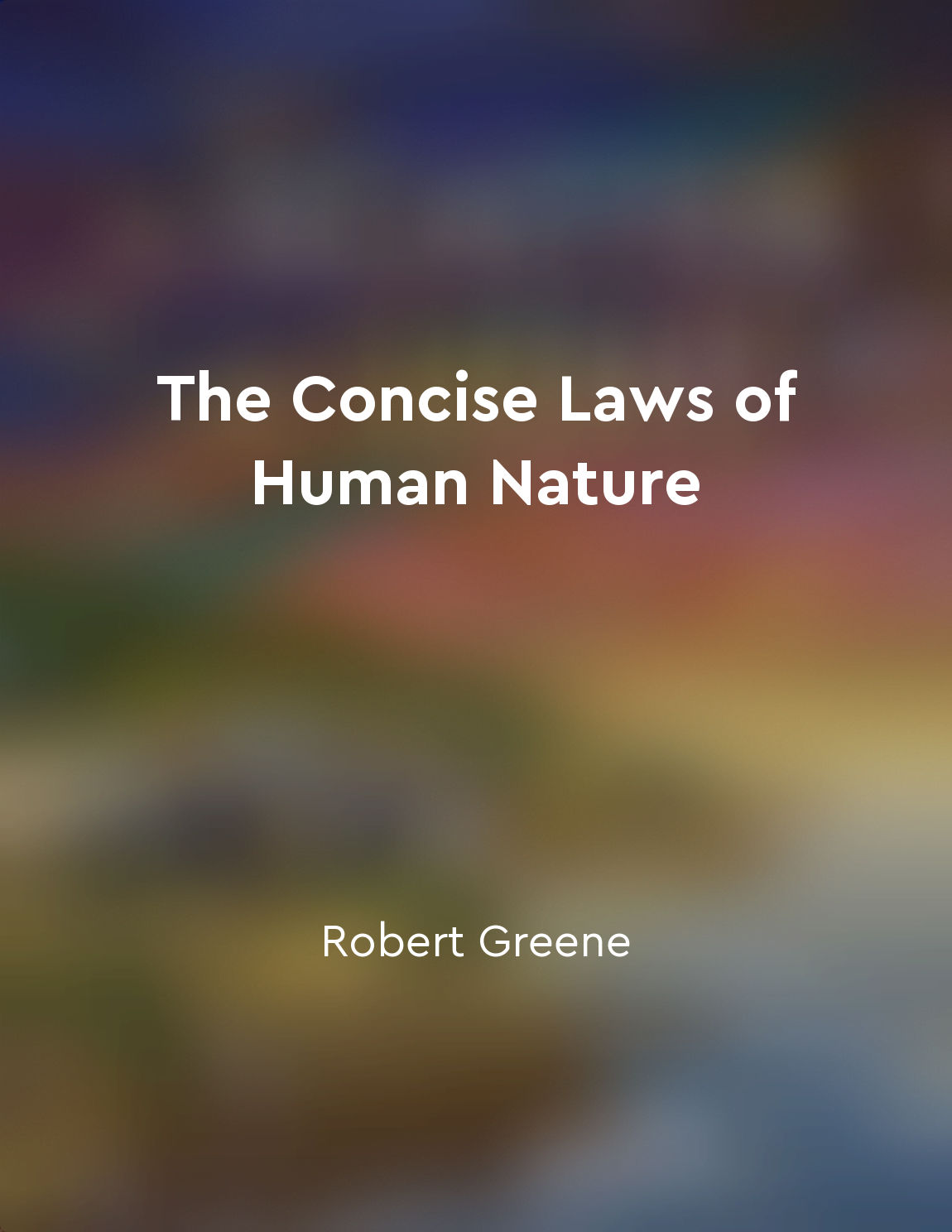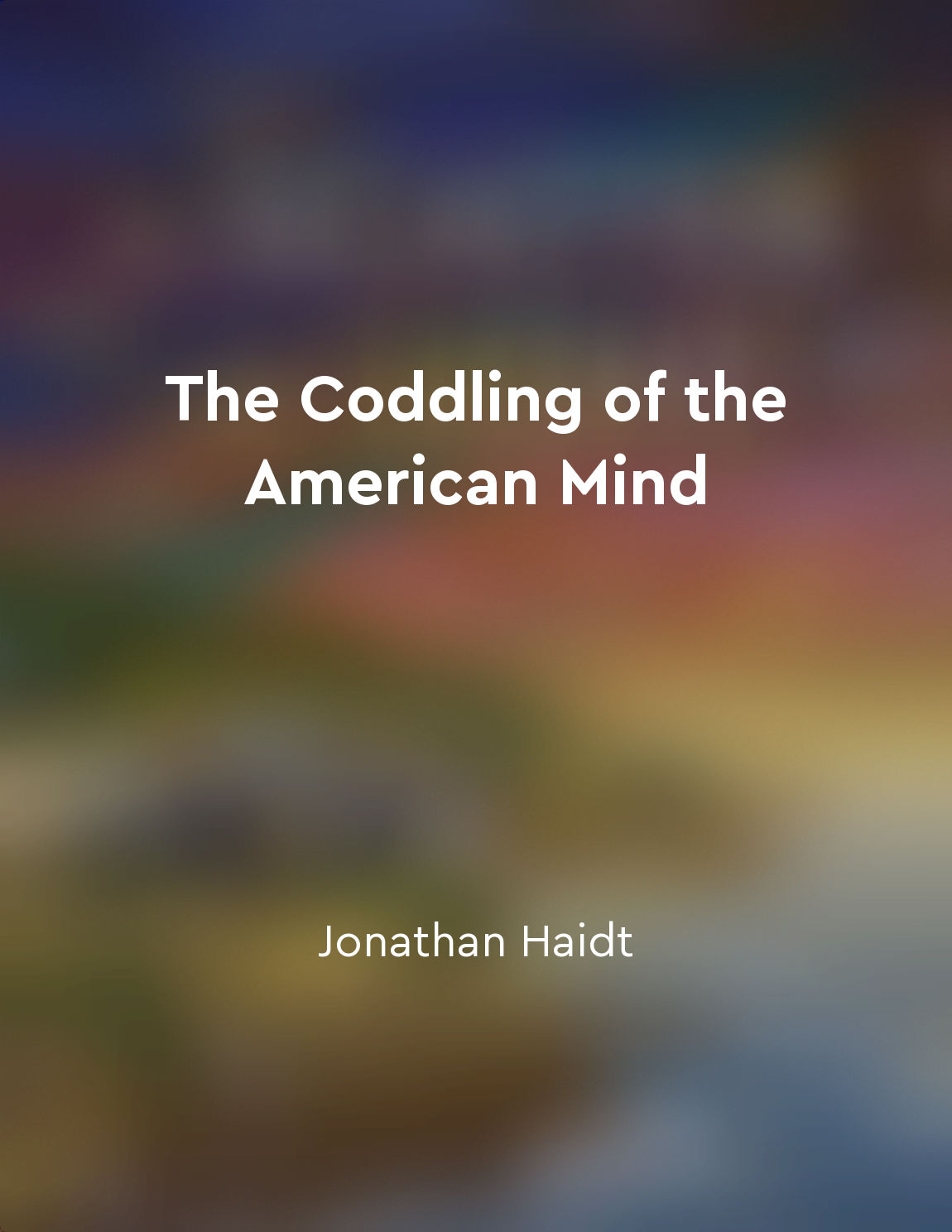Public opinion is influenced by stereotypes and biases from "summary" of Public Opinion by Walter Lippmann
In the realm of public opinion, individuals rely heavily on stereotypes and biases to form their views on various issues and events. These preconceived notions are often deeply ingrained in the minds of people and can significantly shape how they perceive the world around them. Stereotypes are generalizations about a particular group of people or things that are based on limited information or personal experiences. These stereotypes can be perpetuated through various means, such as the media, social interactions, and cultural norms. As a result, individuals may develop biased opinions that are not necessarily rooted in reality but rather in these preconceived notions. Biases, on the other hand, are the tendencies or inclinations that individuals have towards certain ideas, people, or things. These biases can influence how individuals interpret information and make judgments about the world. For example, confirmation bias is a common phenomenon where individuals seek out information that confirms their existing beliefs and ignore evidence that contradicts them. In the realm of public opinion, stereotypes and biases can have a profound impact on how individuals perceive and interpret information. When faced with new information, individuals may filter it through their existing stereotypes and biases, leading them to form opinions that are not necessarily based on facts or evidence. Moreover, stereotypes and biases can also lead to the perpetuation of misinformation and the spread of false narratives. When individuals rely on preconceived notions rather than objective information, they may inadvertently contribute to the spread of misinformation and the distortion of reality.- The influence of stereotypes and biases on public opinion cannot be underestimated. These preconceived notions shape how individuals perceive the world around them and can have far-reaching consequences on the formation of opinions and the spread of information. By being aware of these tendencies and actively working to overcome them, individuals can strive to form more informed and balanced opinions on various issues and events.
Similar Posts
Small details can have a big impact on our decisions
In our daily lives, we are constantly bombarded with choices and decisions to make. From the mundane task of choosing what to e...

Understanding manipulation is crucial
Understanding manipulation is crucial. Manipulation is a powerful tool that can be used for both good and evil purposes. It is ...
Interacting leads to emergence
When things interact, something new emerges. This is the essence of emergence. It is the magic that happens when we bring diffe...
Skepticism is necessary in the digital world
In our digital age, where information is constantly at our fingertips, it is easy to assume that we know more than ever before....
Compassion is the bridge to reconciliation
When we find ourselves at odds with others, it can be easy to view them as the enemy. We see them as obstacles to our own desir...
Understand your target audience
To truly influence and persuade others, it is crucial to have a deep understanding of your target audience. This means knowing ...

Recognizing our own biases and prejudices is essential for personal growth
To truly grow as individuals, we must first confront and acknowledge our own biases and prejudices. This is a crucial step in o...

Clarity in communication prevents misunderstandings
The importance of clarity in communication cannot be overstated. When we express ourselves clearly, we are more likely to be un...
Use visualization techniques to enhance cognitive clarity
One of the most powerful tools we have at our disposal when it comes to improving our cognitive clarity is the use of visualiza...

Engaging with diverse perspectives fosters empathy
Engaging with diverse perspectives is crucial for developing empathy. When we expose ourselves to a variety of viewpoints, we b...

